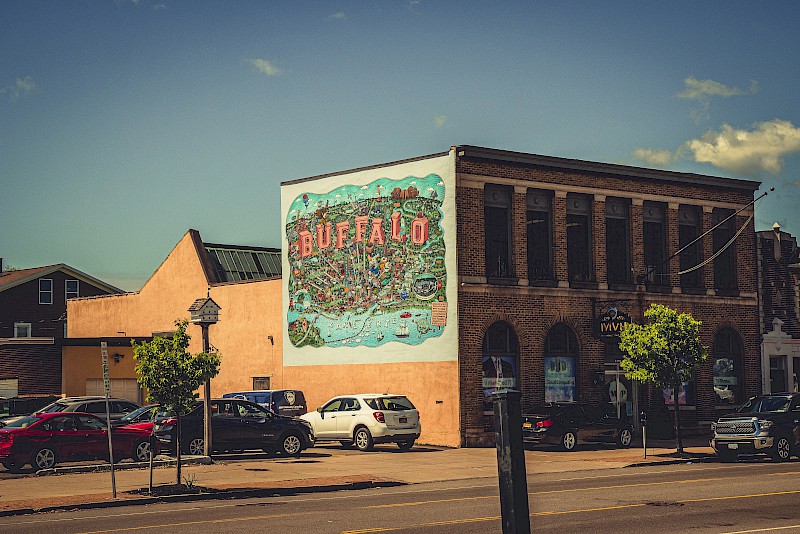However, the Church exists within every ethnicity and culture, and there are many expressions of the Church in the Buffalo, NY area. This means we have brothers and sisters in Christ living in contexts quite different from our own who are just a short distance away. Multi-cultural harvest fields can be significantly challenging and complicated as we learn to navigate relationships and conversations.
Quite honestly, our culture, our nation, and our world are changing, and if the Church is to grow and thrive through it all, we need one another more than ever. To help us better understand and engage with our family in Christ, On Mission has asked several of our experienced Kingdom Come partners to share their insights and wisdom. How do we begin to understand all this? What does love God, love the Church, and love the world, look like in a multi-cultural context both in the church and our communities? We ask you to join us with an open heart, listening to their hearts.
Our first partner is Jonathan Staples, who for the past 14 years has served as the seventh senior pastor of First Shiloh Baptist Church. He has nearly 25 years’ experience serving in this role of senior pastor. First Shiloh is a 104-year-old anchor institution in the Ellicott District of the City of Buffalo that operates a food pantry, a tax preparation program, summer camp, and owns nearly 300 units of housing. Our question for him is: The City of Buffalo and surrounding areas offer a significantly varied landscape culturally, ethnically, and racially. What do you think God sees when He looks at our city? What are ways we can better focus on what unites us to Him and each other as the Body of Christ—living this out in our daily Christian walk?
Jonathan Staples: The City of Buffalo’s resurgence is widely noted and a source for other cities’ inspiration. At the same time, the benefits of the resurgence have not been enjoyed by the entire population. I believe that a vibrant city must work for everyone. Given worrisome and longstanding inequities in key quality of life indicators for Buffalo’s community of color, Buffalo’s long-term well-being is unachievable without intentional efforts to advance racial equity. This transformation will require political action and determination. Thus, I believe that God’s heart bleeds when God looks at our city and witnesses the great racial and economic divide.
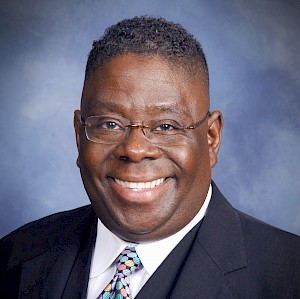
- Personal Change (look at our own life)
- Relational Change (building trust to make change sustainable)
- Systemic Change (change that occurs in institutions and structures)
- Cultural Change (address the cultural patterns that create harm and manipulate; respecting good cultural patterns and work on those cultural patterns that divide)
Our next partner is Gabriel Gauthier. He is the lead pastor at Prince of Peace Christian Church on the west side of the City of Buffalo. For more than 30 years Prince of Peace has been serving the West Side of Buffalo and surrounding communities. As a bilingual church (English and Spanish), God has blessed them to build a multi-ethnic church with two services on Sundays (based on language). On Mission’s question for him is: Help us understand your context by describing your local neighborhood. Within and around your community, are there challenges your church family is facing in building strong relationships in a multi-cultural context and if so, how are they overcoming them?
Gabriel Gauthier: The West Side in the City of Buffalo has changed significantly in the last 10-15 years. I grew up two blocks from our church and when I was younger, there were only some Hispanics and Italians. Given that Buffalo is a refuge city in the State of New York, demographics have changed and we now are host to many countries. From Nepal to Congo, the West Side is replete with diversity and has become a melting pot of culture.
We face many challenges and they surround communication. When you don’t speak their language, it’s difficult to get to know someone better and address a particular need that they have. Because of this and the recent pandemic, we have chosen to open a weekly food pantry in our church called Helping Hands at Prince of Peace. Regardless of race, background, and/or belief, no one should have to go hungry in our City, especially in our own neighborhood. The Armor Project at The Chapel has been instrumental in getting this off the ground and because of this, we have been able to reach more people in the surrounding area. Although we cannot always understand their native language, everyone understands the language of compassion and love. This is demonstrated with a free box of food that will help them feed their family for an entire week. If they need prayer, we are able to pray with them. Additionally, our church has opened its doors to a church from the Congo, who will be having services in our building Sunday afternoons.
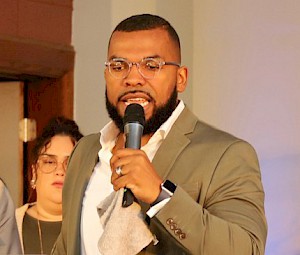
When you empathize, placing yourself in someone else’s shoes, you can understand their heart and the significant struggles that they went through just to make it through a week. Prince of Peace has evolved from being just an Hispanic church in the West Side of Buffalo, to being a multi-ethnic church in the City of Buffalo. All for the Glory of God!
Please welcome Julie Palmer, our next partner. Julie is the wife of Jeff and the mother to four amazing children (two of whom they adopted)! God called her into ministry in 2012. Before that she worked in the field of mental health for 14 years. Our question for Julie is: Your ministry, PATH, focuses on people typically outside the church walls, perhaps invisible in their communities, escaping human trafficking and reaching out for help to begin a new life. With this in mind, who is our neighbor and how do we, as disciples of Jesus Christ, best express to them God’s love, especially when they appear different from ourselves?
Julie Palmer: Our neighbor is the teenage girl who ran away from an abusive home, was coerced into servicing up to 20 men a day for weeks before she was removed from the situation. It is the homeless man you drive by on Route 33 on your way home from work. It's the woman who is engaged in sexual exploitation because she has no idea how to provide shelter for her and her three year old as a single mom. It is the middle aged woman you see getting angry in the store only to learn that she was prostituted since she was a teenager, physically beaten and became addicted to substances to cope with her life. It is a woman in her 20's who is released from jail with no shoes, the clothing on her back - her only possessions. She was forced into theft and prostitution, and after serving her sentence in jail, she had nothing and nowhere to go.
These are our neighbors and the people we serve at our PATH Enrichment Center. Story after story of assault, exploitation, homelessness, prison time, and hunger. They are all over our community but it is very easy to go about our daily activity and not see them. When a person comes in our doors we see pain, suffering, desperation. After a few months at PATH we start to see joy, confidence and healing. Each and every person we encounter at our Enrichment Center experiences God's love by our interactions. People in these circumstances want to see our faith in action, not just hear it. We let them know they are valued, loved, and created in God's image for a purpose. We spend time feeding them, helping them get support, offering art, music, fitness, spiritual nourishment and investing in their well-being. Most importantly, we have a genuine relationship with them without judgement and full of grace.
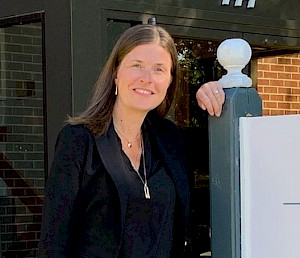
It is so easy to make assumptions about people and dismiss them. We, as the body of believers, can represent Christ in our regard for the oppressed and the least of these. In Matthew 25:40, Jesus says to the disciples, "I tell you the truth, whatever you did for one of the least of these brothers of mine, you did for me." We believe how we treat the most afflicted is a direct representation of our relationship with Jesus Christ. Once people experience God's love flowing out of us, they want to learn more about Him.
On Mission: The ministry of PATH sounds very intense. How did you become a part of this ministry?
Julie Palmer: God put a very heavy burden on my heart for those victimized by sex trafficking after listening to a presentation on the issue. I remember his voice, "Julie, I want you to do something about this". I had NO idea that it would mean leading PATH (People Against Trafficking Humans) Inc. and developing our Enrichment Center. God has opened many doors over the years for PATH to provide support services for women, men and youth who are at risk or affected by human trafficking physically, emotionally, and spiritually. Most recently, we had a generous donor purchase us a building and we moved our Enrichment Center to 999 Delaware Avenue in Buffalo.
Next up is Chad Rieselman. Chad is Christina’s husband and Ethan, Nash and Samuel’s dad. He leads Lumber City Church, a mission-minded community in North Tonawanda. They meet at The Hope Center which is a hub for their mission to do their part in making the Oliver Street Corridor of North Tonawanda a safe place to raise a family among “good neighbors,” no matter what your socio-economic, skin color, or worldview is. Our question for Chad: Is there a forum or place in WNY where pastors and church leaders are able to come together to pray, strategize, and collaborate for a Kingdom impact in our region? If so, what does that look like?
Chad Rieselman: Buffalo is an outlier in many ways. It was viewed just a few decades ago as a “burned over” district. Mini church expressions became self-sufficient and isolated. All of that has changed in the past decade. There is a level of Kingdom-mindedness and collaboration that exists here. I have found sometimes in traveling the country that when I mention I am from Buffalo there is an immediate interest in “what is happening” here.
What is happening, I believe, is a move of the Holy Spirit to bring about a unity that changes the landscape of all of the ways the Kingdom has been fragmented. To put it plainly, churches in Western New York work very well together, unifying and collaborating for the common cause of the Kingdom of God in a very unique and special way.
There are forums where pockets of church leaders get together to strategize and pray. I am excited for more of those groups to do more things in a unified way for the entire region, but they do exist in Christ Together groups and other ecumenical cells across WNY.
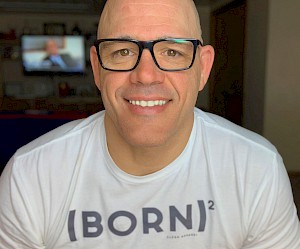
Our last but not least partner for this discussion is Andre Clark. Andre is most often called “Shep” which is short for Shepherd. He is the much-loved shepherd of New Direction Christian Fellowship and connected forever to his wife Jennifer. He is “father” of many (in the spirit) and friend to all. Our question for him is: What are some steps each person can take to build trust in communities, collaborate in providing a gospel presence to reach the lost, and for individuals to discern and engage cross-cultural opportunities to support one another as brothers and sisters in Christ in the Greater Buffalo Area?
Andre “Shep” Clark: What a wonderful world we would be in if we could collaborate in providing a gospel presence to reach the lost, and for individuals to discern and engage in cross-cultural opportunities to support our brothers and sisters in Christ. Unfortunately there is a huge component that is missing, and that is trust. Trust is like the cabinets that our wives have been asking us to put together every weekend since Christmas. We start to assemble them but get frustrated and go on to something else. If we are going to build relationships we will have to walk alongside each other and work until trust is formed. The Bible says, “Speak up for those who cannot speak for themselves, for the rights of all who are destitute. Speak up and judge fairly; defend the rights of the poor and needy” (Proverbs 31:8-9 NIV). When we see a fellow brother that is being treated unjustly, we are expected to say or do something that resembles what Jesus would have done. Jesus was not a moderate. He was actually controversial and radical. Jesus stood up for the woman that was caught in the act of adultery. Jesus saw the need to go into Samaria, the place no Jewish man would walk through let alone take the time to minister to a Samaritan woman. Jesus healed on the Sabbath and challenged their view of the law. This was all done for the furtherance of the gospel. This was against the norm and caused tension with those who stood by the law (system).
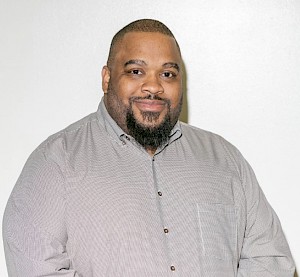
A special “Thank You!” to all for sharing their hearts and for their partnership in the gospel in WNY.
